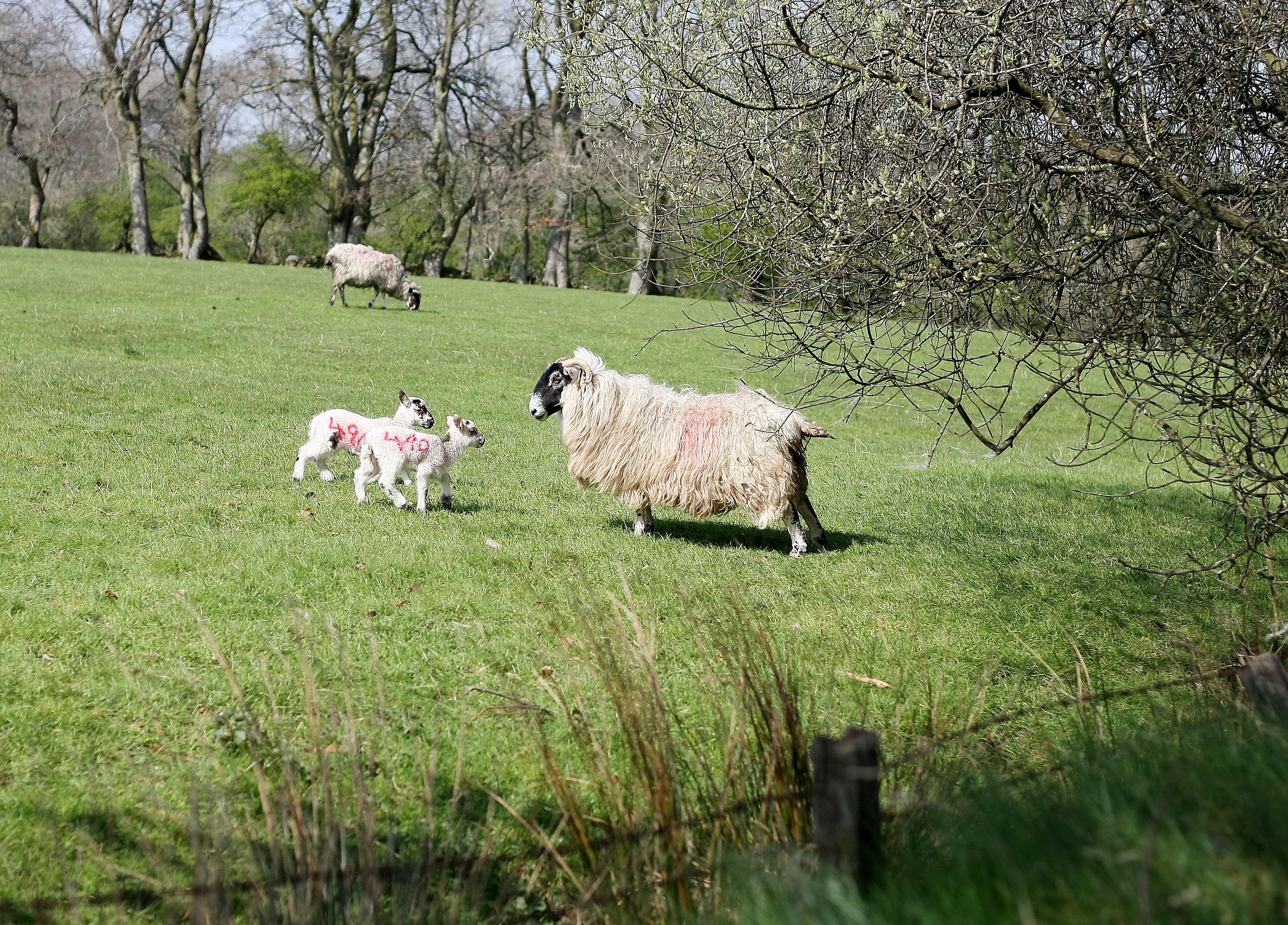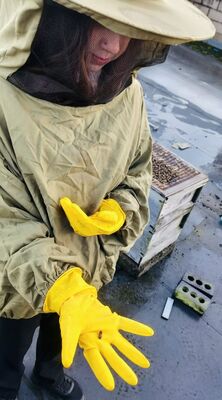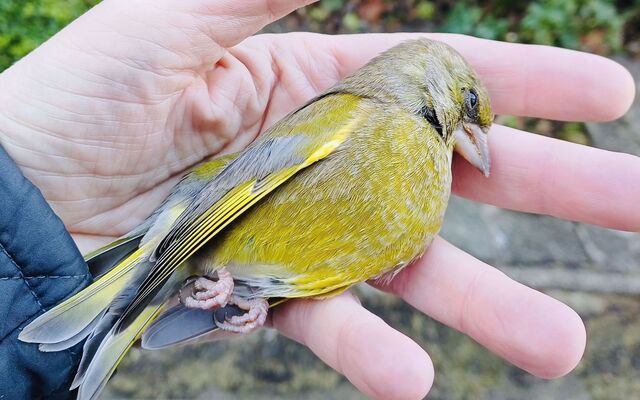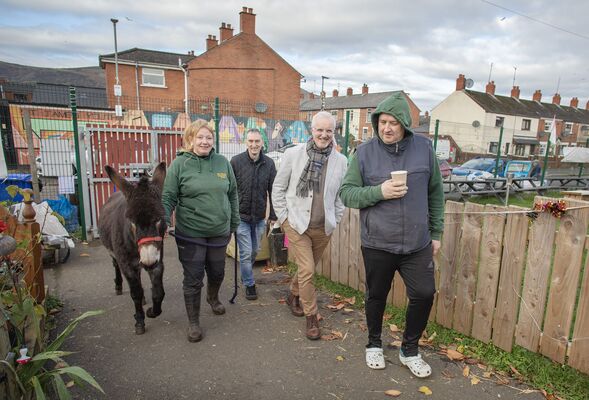THERE’S a revolution coming – and it will transform our lives like the industrial revolution did to our ancestors. It will involve something so basic in our lives that we barely question it – food. And according to one expert, if we don’t embrace this change, we could all be doomed.
The world already produces more than enough to feed everyone – in fact twice as much (the surplus is used to feed farm animals). But we do it recklessly, with sprawling farms producing small amounts of food but destroying ecosystems that, we now know, keep not just us alive, but the whole planet.
It’s been clear for some time that we’re approaching a tipping point. And once this happens, it might be impossible to flip back. What that could mean is too terrible to contemplate.
Such a tipping point was crossed in what is now known as the US Dust Bowl – vast prairies where the soil was incrementally damaged by intense cultivation. Suddenly, the soil structure collapsed. Within a few years, the wind whipped countless tonnes of soil off the scorched land, rendering it forever useless.
Complex systems like our countryside all have thresholds. They can absorb a certain amount of change without altering the way they behave. Then, suddenly, their self-organisation breaks down and they collapse.
This time, the world is at a tipping point, according to experts from fields that include climate, nature and wildlife. For years now, it’s been a scary story we’ve watched on TV or read about online, as if we were just bystanders. But now we’re actors, participants, in this tragedy. Author and environmental activist George Monbiot has cut through all the spin and complications to put his finger on the root of the problem – and it’s something that few of us could ever imagine as the bogeyman: farming.
Farmers aren’t out to destroy the environment, but by trying to make a living under present rules, it’s what happens. Farming is the world’s major cause of ecological destruction, Monbiot says. We must stop how we do it and in turn make a fundamental change to our lives. The problem, as Monbiot explains in his landmark book ‘Regenesis: Feeding the World without Devouring the Planet’, is so extensive that it threatens all our lives.
All around Belfast you can see the problem – that of ‘agricultural sprawl’, where vast tracts of land are given over to a few farm animals. Hedgerows are continually being hacked down and fields drained to give small herds of sheep room to roam. Monbiot argues that this type of farming must stop. It creates dead zones where wildlife is lost and creatures are made extinct. “People often assume that a green land is a pleasant one, but little survives in these fields,” he writes. This agricultural sprawl – that we see all around us in Ireland – actually threatens the survival of our life support systems, he says.
Livestock farming like this is an economic fantasy, he argues, sustained either by lashings of public money or public tolerance of environmental destruction. He wants us to make peace with the planet. In the Netherlands, a rewilding project employs six times as many workers as the dairy farms it replaced, as small businesses proliferated to serve people coming to watch the wildlife.
Dúlra could imagine the same happening all around the outskirts of Belfast, places that are sadly too dangerous to walk to because there are no paths on the narrow roads, but, when you drive through, you just see ever-expanding fields where sheep graze or silage is grown. Wouldn’t it be truly amazing if these vast tracts of land were returned to nature, planted with native trees, all under the guardianship of the farmers, that we could all visit?
The world’s governments spend $500 billion on farm subsidies. To get the EU subsidy, the land must be almost bare. ‘Ineligible features’ are disqualified from subsidies – hedgerows, marshes, ponds and reeds. Precious, precious things.
The EU, he says, pays people to destroy wildlife features, then, bizarrely, pays them to introduce some ‘wild’ features. “The money that farmers get to first destroy and then minimally to restore upland ecosystems – £37,000 a year on average in the UK – could be used instead to help them rewild their land.” Monbiot calls for extreme, urgent action. The right to farm is sometimes incompatible with the right to a thriving planet, he argues. Pretending the conflict between a healthy planet and farming doesn’t exist ensures it won’t be resolved. Of the 28,000 species known to be at imminent risk of extinction, 24,000 are threatened by farming.
Relying on meat for protein is also unsustainable, he says. Sixty-six billion chickens are slaughtered each year, almost eight for every person on the planet. It’s increased five-fold in 50 years. And here’s an incredible statistic: only 29 per cent of the weight of birds on earth are wild. The rest are poultry. Whatever about the suffering of those chickens, he says the meat produced is so bland that it “scarcely seems like meat at all”. It’s a generic white protein to which flavourings, crusts or sauces are added to create an array of fast foods and dinners.
So we shouldn’t be so reluctant to eat new farm-free sources of protein. And one has recently been developed – microbial fermentation, which produces protein from bacteria that can be used just as easily as today’s chicken. “Are you horrified by the idea of eating bacteria?” He asks. “If so, I have bad news: you do it with every meal. In fact, your digestion, immune system and general health depend on consuming them.”
Farm-free food also enables us to rewild most of the land now used for farming. “We wonder how we might modify the industries that are driving us towards disaster, while the scale of our crisis demands that we replace them,” he writes.
The book shines a light on another vital part of life on earth that we all overlook – the soil. Just a couple of years ago, academics took the first steps in what will be a Theory of Soil, to understand what it actually is and how to protect it. “It has taken us until now to grasp that the thing on which our lives depend is a biological structure. The soil might be the most complex of all living systems. Yet we treat it like dirt,” he goes on. It’s the fragile cushion between rock and air on which civilisations are built. To expect this system – packed with millions of creatures – to withstand all we throw at it “could be the most dangerous of our assumptions about the global food system”.
Monbiot speaks to one academic who told him: “I study insects because I love them. But the only funding I can get is to kill them.” Our soil, being purged of worms and insects, is in crisis. And we know that these systems – our soil, our environment, our global food network – are reaching a tipping point because they begin to ‘flicker’. Their behaviour becomes more volatile – small changes that the system would have absorbed are turning into bigger shocks.
Monbiot says that the way governments dealt with the pandemic is evidence that they can act correctly when necessary. And that the public will make sacrifices when they are called to. Slightly altering our diets, reducing the land area occupied by farming and expanding protected places are tiny changes by comparison to the changes forced by the pandemic.
The revolution which will recast our relationship with the living planet will come sooner or later, but if we leave it much later, the tipping point could be crossed. Our planet – and certainly Ireland – is being destroyed year by year. The Age of Extinction – which we are blindly presiding over – can be succeeded by an Age of Regeneration.
• If you’ve seen or photographed anything interesting, or have any nature questions, you can text Dúlra on 07801 414804.








